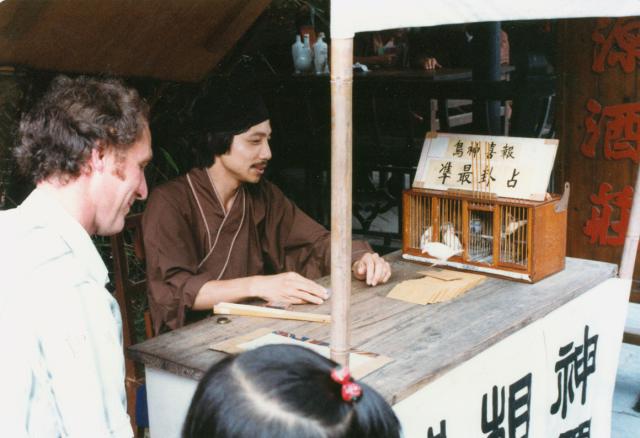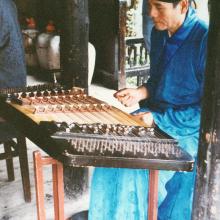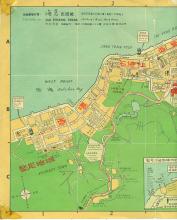There were at least three different means by which you could have your fortune told. I wonder whether any of the 'clever' birds still hop out of their cages to select an auspicious, or otherswise, fortune for you?
Sung Dynasty village fortune teller
Primary tabs

Submitted by Andrew Suddaby
Date picture taken (may be approximate):
Sunday, July 26, 1981
Gallery:
Connections:
- Sung Dynasty village fortune teller shows Place Sung Dynasty Village, Lai Chi Kok [1979-c.1997]




Comments
You can still see this type
You can still see this type of fortune teller around Temple Street night market.
Regards, David
Fortune Telling by Birds
Greetings. This may be of interest to viewers who wonder about the eight Chinese characters above the bird cage. They read from right to left.
報 = report / announce, 喜 = joy, 神 = deity (adj.), 鳥 = bird
The first character in the second line looks simple, but it is the most challenging. I could not find it in the Chinese dictionary. As people often say, if you cannot pronouce or understand the word, pronouce its first half left or top, same for its definition. So, I started with the two strokes in the top half, and noted its shape had evolved over time to the current [卜] meaning to divine (verb). The lower half of the character is mouth [ 口 ] , so the connection here is the bird's mouth. When combined with the second character, 卜卦 means fortune telling.
The last two characters 最準 = most accurate.
Andrew, did you go to the race track next? Corrections welcome. Regards, Peter
Hi Old Timer,
Hi Old Timer,
Thank you for the translation. The Chinese characters suggest that the message might be more complex and poetic than the likely raher prosaic English version - something along the lines of 'Let the bird tell your fortune'. Is that about right? The Sung Dynsty was very interesting and it's a shame that it was demolished some years later. No, we didn't visit the race track and I doubt whether we knew one existed there. Best wishes, Andrew
Fortune Teller - by man and bird
Thank you for the photo, Andrew. Yes, the English phrase gives a similar message.
The Chinese lines here go one step further, the bird has connection to higher up and the prediction is most accurate. This 2-liner does not rhyme like a poem, nor need be given that it is a message / advertisement. I learned some poems in my Hong Kong time, most of them 5 characters and 7 characters, and few 7s + the occasional 3s in between.
A fortune teller likely has another choice for you. He shakes a can containing thin wooden or bamboo sticks of equal length marked with different colours and patterns. He would interpret the stick you have drawn. This falls in the same category of the two difficult characters in the second line, but we have no way of "telling" which is more accurate, the bird or our fingers. Regards, Peter
Hi Peter,
Hi Peter,
Thank you for your very interesting insight into Chinese poetry. I am puzzled how the characters rhyme. The characters are understood by everyone but presumably Mandarin, Cantonese and the many dialects will often have different spoken words for the characters so, if a poem is read out aloud there will not necessa\rily be a rhyme. Am I missing something? Best wishes, Andrew
Fortune Teller
Hi Andrew, I mis-interpreted your earlier response about something poetic. His two-liner was intended as an ad. In Cantonese dialect, the two lines do not rhyme, perhaps other dialects do.
Rhyme in Chinese poems is quite similar to that in English poems, where the pitch and sound of the last word in one line is repeated by another similar-sounding word at the end of the next line or two lines next. Some chinese rhyme words are the first word in the line and repeated also first in the next line, some repeated as the second word in the same line.
The rhyme remains when you move to another dialect (or language) as long as you read or recite using consistently the same dialect. The difference, here in my opinion, is that the dialect we learned when young is the one that generates deeper feelings and emotion. Regards, Peter
Thanks Peter, That clarifies
Thanks Peter, That clarifies things nicely. Andrew